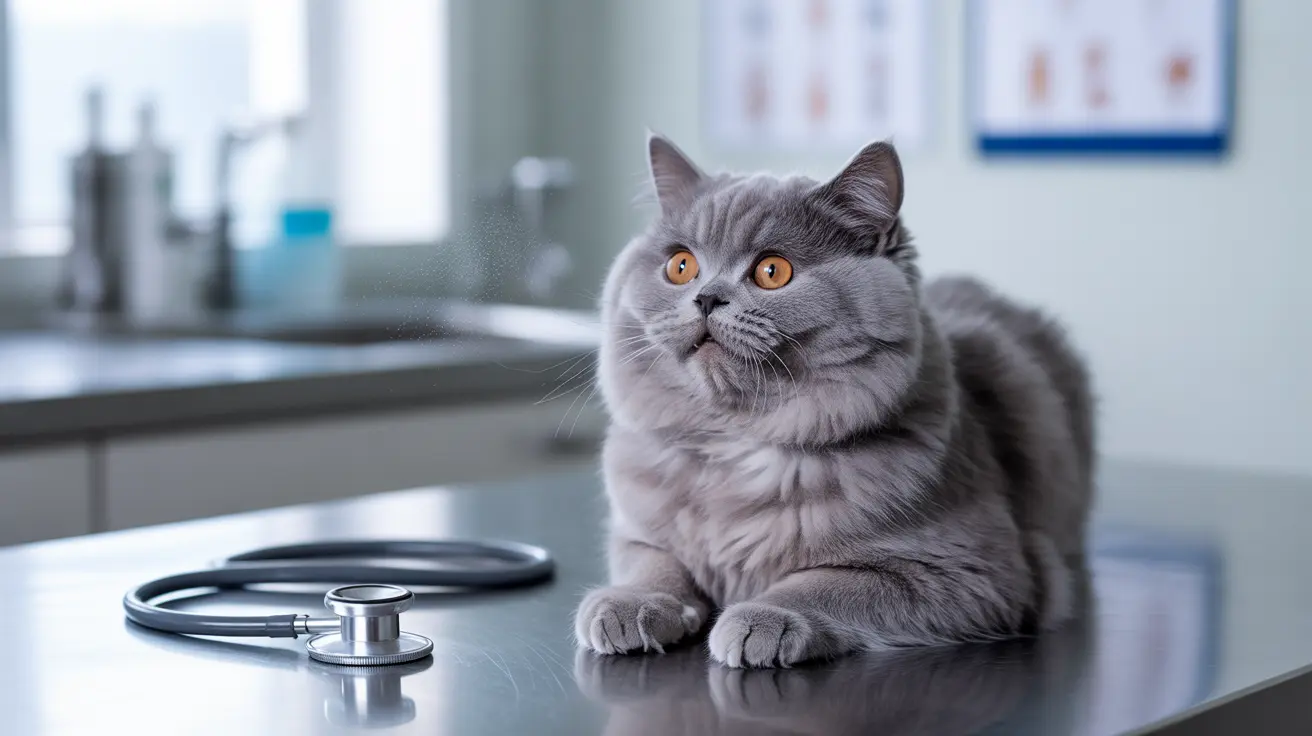Discovering your cat sneezing blood can be an alarming experience for any pet owner. This concerning symptom is always considered abnormal and requires proper veterinary attention, as it can indicate various underlying health conditions ranging from minor irritations to serious medical emergencies.
Understanding the potential causes and knowing when to seek immediate veterinary care can make a crucial difference in your cat's health outcome. Let's explore the common causes, treatment options, and warning signs you should never ignore.
Common Causes of Blood in Cat Sneezes
Trauma and Foreign Objects
Physical injuries to the nose or face from accidents or fights can lead to bloody sneezing. Similarly, foreign objects like grass blades or small toys that get lodged in the nasal passages can cause irritation and bleeding. These situations often require immediate veterinary attention for proper assessment and removal.
Upper Respiratory Infections
Viral and bacterial infections are frequent culprits behind cats sneezing blood. These infections can cause inflammation and damage to the delicate blood vessels in the nasal passages. Common viral culprits include feline calicivirus and herpesvirus, which may require specific treatments and supportive care.
Dental Disease and Related Complications
Severe dental problems, particularly those affecting the upper teeth, can lead to infections that spread to the nasal cavity. This connection between dental health and nasal bleeding often goes unrecognized by pet owners but requires prompt attention to prevent worsening complications.
Serious Medical Conditions to Consider
Nasal Tumors and Polyps
Both benign and malignant growths in the nasal passages can cause persistent bleeding and sneezing. These conditions are more common in older cats and require thorough diagnostic imaging for proper identification and treatment planning.
Systemic Health Issues
Blood clotting disorders, hypertension, and certain autoimmune conditions can manifest through nasal bleeding. These underlying health issues require comprehensive veterinary evaluation and often need long-term management strategies.
Immediate Steps When Your Cat Sneezes Blood
If you notice your cat sneezing blood, take these initial steps:
- Keep your cat calm and in a quiet environment
- Apply a cold compress to the nose if tolerated
- Monitor breathing and overall behavior
- Contact your veterinarian immediately for guidance
Professional Diagnosis and Treatment
Your veterinarian will likely perform several diagnostic tests to determine the underlying cause:
- Physical examination and medical history review
- Blood work and clotting tests
- Diagnostic imaging (X-rays, CT scans)
- Specialized tests for specific conditions
Frequently Asked Questions
What are the most common causes of a cat sneezing blood?
The most common causes include upper respiratory infections, nasal trauma, foreign objects in the nasal passage, and severe dental disease. Less common but serious causes can include nasal tumors, blood clotting disorders, and systemic diseases.
How should I respond if my cat suddenly starts sneezing blood at home?
Keep your cat calm, apply a cold compress if possible, and contact your veterinarian immediately. Monitor your cat's breathing and overall behavior while awaiting professional guidance.
Can dental problems cause my cat to sneeze blood and what signs should I watch for?
Yes, dental problems can cause bloody sneezing, especially when infection spreads from upper teeth to the nasal cavity. Watch for bad breath, difficulty eating, drooling, and facial swelling as additional signs of dental disease.
When is sneezing blood in cats considered an emergency requiring immediate veterinary care?
Seek immediate emergency care if there's profuse bleeding, difficulty breathing, collapse, or signs of severe distress. Any instance of blood in sneezing warrants at least a veterinary consultation, even if it seems minor.
How do veterinarians diagnose the underlying cause when a cat is sneezing blood?
Veterinarians use a combination of physical examination, blood tests, diagnostic imaging (X-rays or CT scans), and sometimes specialized tests like rhinoscopy or bacterial cultures to determine the underlying cause.
Prevention and Long-term Care
While not all causes of bloody sneezing can be prevented, maintaining good preventive care can reduce risks:
- Regular veterinary check-ups
- Proper dental hygiene
- Updated vaccinations
- Clean, dust-free environment
- Prompt attention to any respiratory symptoms






